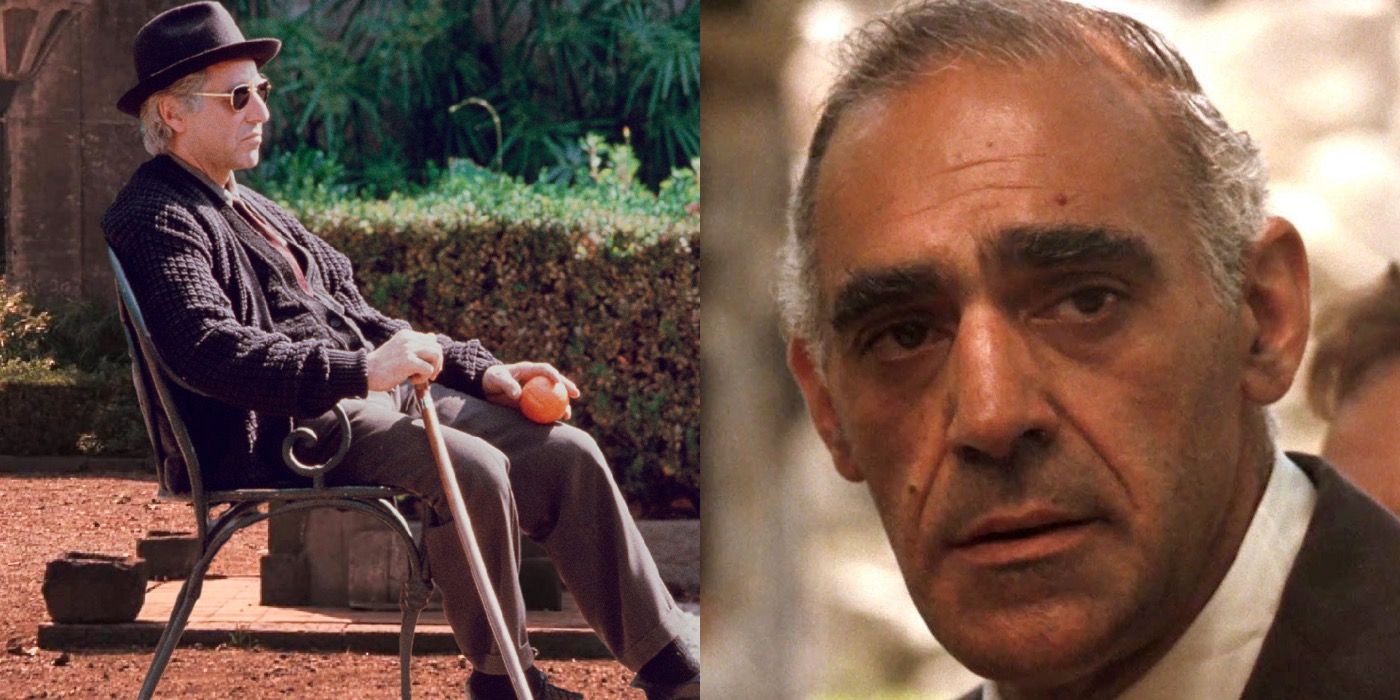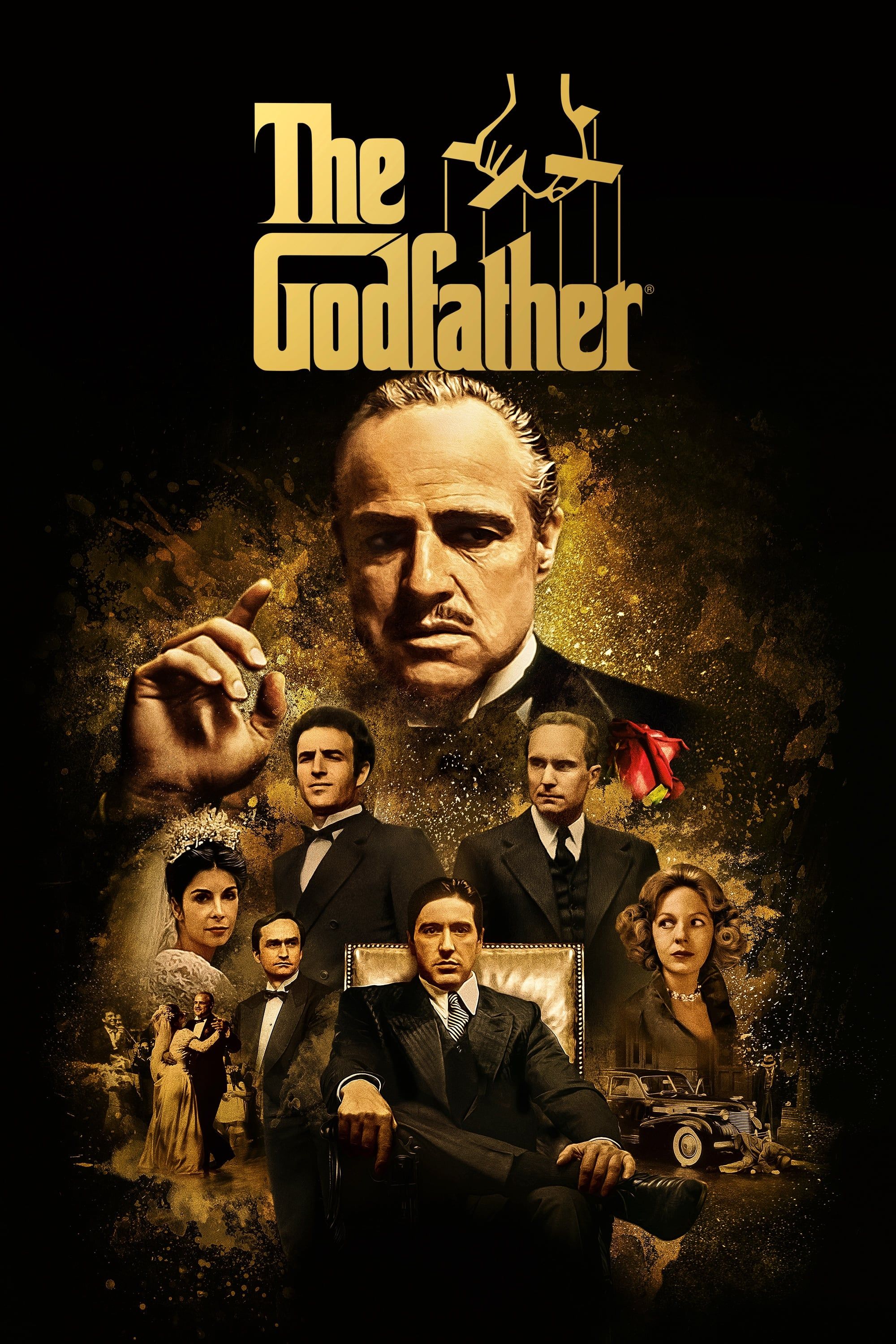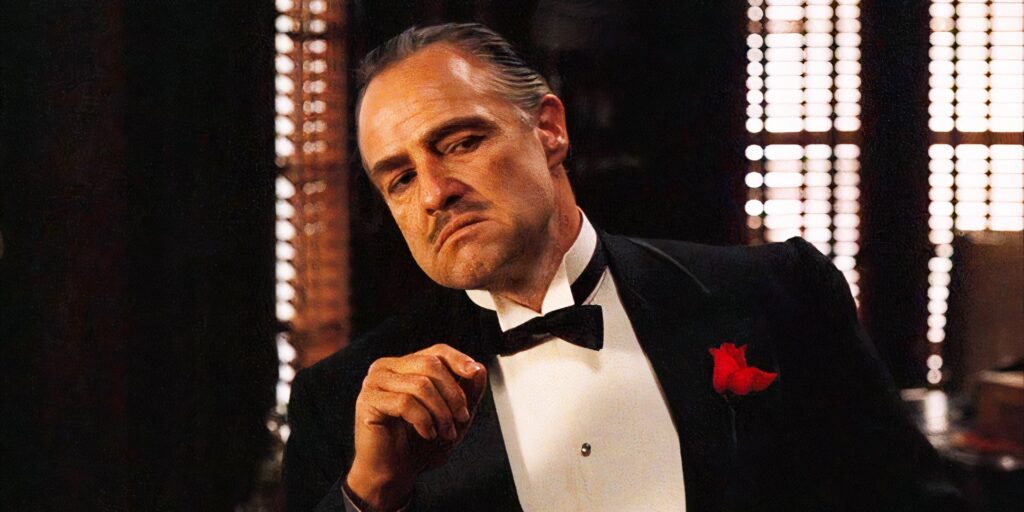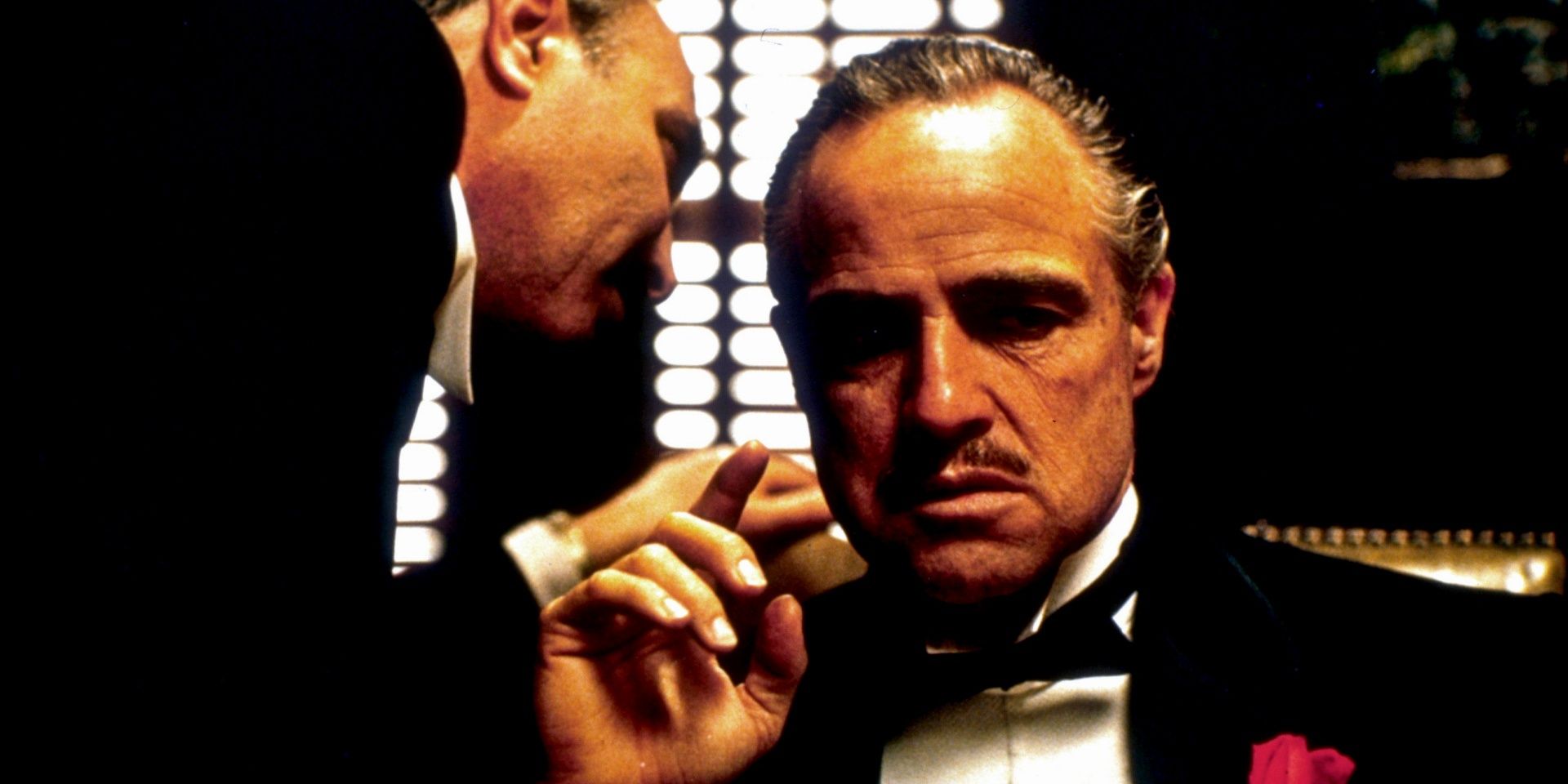While Don Corleone’s assertion in the opening scene of The Godfather that “we’re not murderers” may sound hypocritical, the truth is that there was logic behind his seemingly contradictory statement. As perhaps the definitive gangster movie, The Godfather and its sequel, The Godfather Part II, have been remembered as some of the greatest films of all time, with both even earning Best Picture at the Academy Awards. Yet in a movie filled with calculated killings, it’s interesting to see the mental gymnastics that mafia men play to justify their questionable morality throughout Francis Ford Coppola’s iconic series.
The Godfather featured its fair share of murders, which might make Marlon Brando’s Don Corleone look like a total liar after he uttered this statement to his consigliere, Tom Hagen. While we even saw Don carry out murders himself in Part II, in this scene, he refused the undertaker Amerigo Bonasera’s request for vengeance against the two young men who assaulted his daughter. Although the Corleone name was practically synonymous with organized killings, it’s only with an understanding of Don Vito’s flawed psychology that we realize he sincerely does not believe he, or his family, are murderers.
The Godfather’s Don Corleone Sees Killing Something & Murder As 2 Different Things
Don Vito Lives His Life By His Own Moral Code
Don Corleone denied Bonasera’s request for good reason, and that’s because he sees killing and murder as two totally different things. For Don, killing someone is about carrying out business, and those who are in the mafia game should know the deadly consequences of a life in organized crime. However, to end the life of another for personal reasons does not justify murder in his eyes. While Bonasera came to Don begging for justice, Don felt that because Bonasera’s daughter was still alive, murdering the two young men would not equate to fair treatment.
As a gangster who built himself up from nothing after emigrating from Sicily to the United States, although Don Vito may not live his life by the letter of the law, he still acted under his own personal code of justice. Bonasera was driven by anger and hatred against his daughter’s American boyfriend, Kevin Moonan, and his college buddy, Jerry Wagner, who attempted and failed to rape her. While Bonasera asked for Don to, “Let them suffer, then, as she suffers,” Don saw this as vengeance and not justice.
“You come into my house on the day my daughter is to be married and you ask me to do murder, for money.”
Don Corleone was even offended by Bonasera’s request, leading to the famous quote, “You come into my house on the day my daughter is to be married and you ask me to do murder, for money.” Don felt disrespected by this request, especially considering that Bonasera was previously unwilling to accept Don’s friendship, as he did not want to be associated with organized crime. While Bonasera had previously acted like he was more morally upright than the mafia, he showed his true colors when he asked Don to break his code of ethics for personal revenge.
Vito Doesn’t Actually Order Many Deaths In The Godfather
There’s A Warped Sense Of Logic To All Of Don’s Killings
Don Vito’s sincere belief that he’s not a murderer and merely carrying out business as necessary was supported by the fact that he’s not involved with many of the deaths in The Godfather and serves a more diplomatic role as head of the Corleone family. The most violent acts in The Godfather, such as the horse’s head, the Sollozzo hit, and the baptism massacre, were all carried out by others. In the end, it was Vito’s most straitlaced son, Michael, who embraced his darker side and became more ruthless and volatile than Don ever was.

Related
The Godfather: Every Major Character Death, Ranked From Least To Most Tragic
When it came to The Godfather trilogy, death was a recurring theme as many of the main characters were killed. But whose death was the most tragic?
While The Godfather movies explored the cyclical nature of violence and the destructive impact of organized crime, Vito’s actions have always been driven by balance and control. The rare killings that he does oversee, like Fanucci and Ciccio in Part II, were calculated and measured acts of business that were framed as simply necessary. The Godfather’s Don Corleone lived his life in a way that saw him doing everything he could to never step over an invisible line that he had constructed for himself, which, had he ever crossed it, would have turned his killings into murders.

The Godfather
Release Date
March 24, 1972
Runtime
175 minutes


